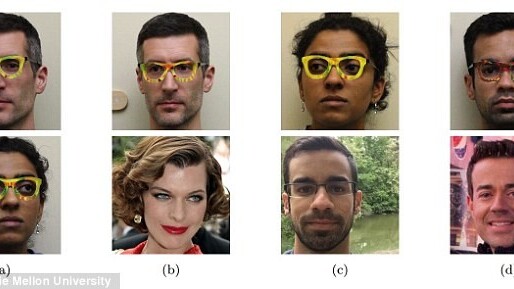
As the future veers toward artificial intelligence, robotics, and biometric security measures ripped straight from a Sci-Fi novel, you might be amused to know plastic sunglasses are the key to their undoing.
Researchers at Carnegie Mellon University developed a 3D-printed pair of sunglasses that cost all of 22 cents to manufacture. The sunglasses, according to an accompanying study, fools advanced facial recognition software by altering small bits of color information in a face.

The software relies on neural networks to compare pixel coloration in specific areas of the face to match one image to another. When something alters this pixel coloration, it confuses the software. Researchers say the glasses are good at both impersonation and dodging attacks. The former “seeks to have a face recognized as a specific other face,” the researchers explain. The latter is more of an attempt to avoid being detected at all.
Impersonation attacks pose the biggest threat, as many devices now use facial recognition as an authentication tool.
In their experiments, all three subjects were able to dodge the facial recognition software. One subject, a white male scored an 87.7 percent probable match with Milla Jovovich, a South African actress. In another, a Middle-Eastern man matched to the tune of 88 percent with a South-Asian female. Another Middle-Eastern male was able to impersonate Clive Owen, a caucasian actor.
Overall, the system achieved a 90 percent success rate in foiling facial recognition software.
Get the TNW newsletter
Get the most important tech news in your inbox each week.




